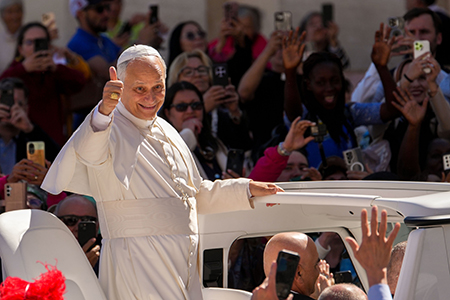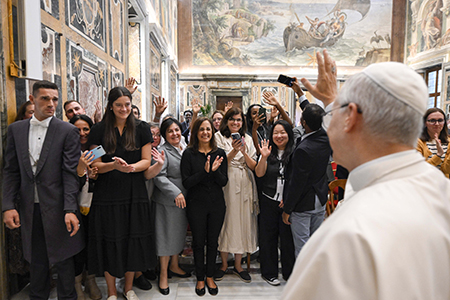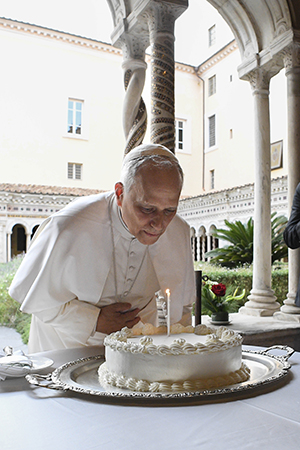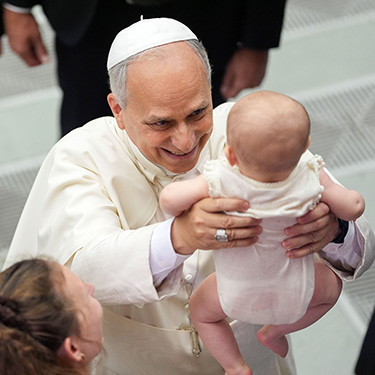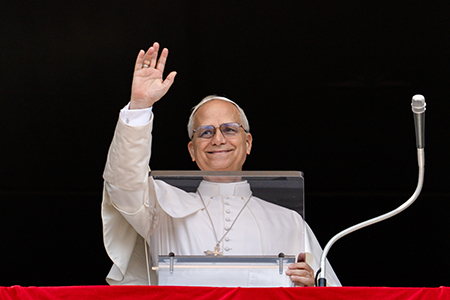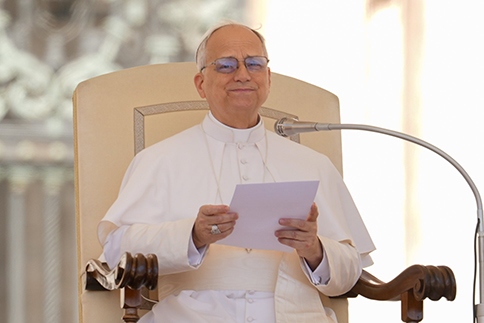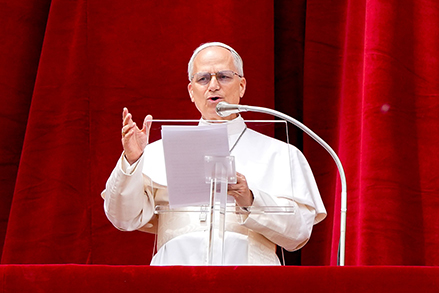By Carol Glatz
VATICAN CITY (CNS) – Christians must avoid using their faith to label those who are different – often the poor – as enemies to be avoided and rejected, Pope Leo XIV said.
“Some forms of worship do not foster communion with others and can numb our hearts,” he said in his homily during Mass in St. Peter’s Square Oct. 12 for the Jubilee of Marian Spirituality.
“Mary’s path follows that of Jesus, which leads us to encounter every human being, especially the poor, the wounded and sinners,” Pope Leo said in his homily. “Because of this, authentic Marian spirituality brings God’s tenderness, his way of ‘being a mother,’ to light in the church.”
Members of movements, confraternities and various Marian prayer groups were invited to Rome for their Oct. 11-12 Jubilee, which included an evening prayer service in the square Oct. 11 with Pope Leo in the presence of the original statue of Our Lady of Fatima.
The statue, brought from the Shrine of Our Lady of Fatima in Portugal, also was on display during the Oct. 12 Mass.
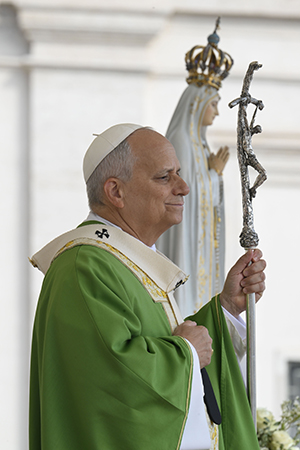
Marian spirituality, “which nourishes our faith, has Jesus as its center,” Pope Leo said in his homily. Remembering Jesus Christ is what matters.
“The celebration of Sunday, therefore, should make us Christians,” he said. “It should fill our thoughts and feelings with the burning memory of Jesus and change the way we live together and the way we inhabit the earth.”
When some forms of worship fail to foster communion with others, he said, “we fail to encounter the people God has placed in our lives. We fail to contribute, as Mary did, to changing the world, and to share in the joy of the Magnificat.”
“Let us take care to avoid any exploitation of the faith that could lead to labelling those who are different – often the poor – as enemies, ‘lepers’ to be avoided and rejected,” he said.
“Marian spirituality is at the service of the Gospel” because “it reveals its simplicity,” he said.
“Our affection for Mary of Nazareth leads us to join her in becoming disciples of Jesus,” he said, and “it teaches us to return to him and to meditate and ponder the events of our lives in which the Risen One still comes to us and calls us.”
Marian spirituality “helps us to see the proud being scattered in their conceit, the mighty being cast down from their thrones and the rich being sent away empty-handed,” he said, referring to the Canticle of Mary (Lk 1:51-54). “It impels us to fill the hungry with good things, to lift up the lowly, to remember God’s mercy and to trust in the power of his arm.”
Just as God asked Mary for her “yes,” he said, “Jesus invites us to be part of his kingdom.”
“Dear friends, in a world seeking justice and peace, let us revive Christian spirituality and popular devotion to the events and places blessed by God that have changed the face of the earth forever,” he said.

